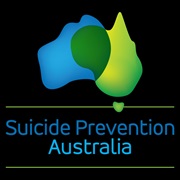
With special guest:
- Kim Borrowdale
The World Health Organisation estimates that over 800,000 people die by suicide every year - that’s one every 40 seconds. In Australia the latest figures show that 2,684 Australians took their own life in 2014. And what is worse is that the official figures are undoubtedly conservative because of the method of reporting and the desire by survivors to avoid the stigma of having a family member dying in that way.
Against this desire to keep the facts quiet, communication is a primary way of raising awareness in the community. Communication is the driver of R U OK?, an Australian group doing great work to help reduce suicide. We also hear how the Connect Communicate Care messages of World Suicide Prevention Day are important ways of responding to the unacceptably high suicide rate in Australia.
Suicide Prevention Australia has conducted a survey in collaboration with the University of New England to gain some insight into the ripple effect of suicide in Australia. Surprisingly there are currently no large Australian samples of this kind available. The ripple effect can lead to a wave of suicides in a community but if harnessed properly could also lead to positive effects and that brings us back to the theme of Connect Communicate Care.
Our guest today tells us the results of the survey which included some surprises. One of the findings is that suicide is not always associated with poor mental health. Although those dying by suicide are normally in a stressed condition there are a number of factors that can lead to the ultimate action.
In particular Kim Borrowdale tells us the importance of identifying those with “lived experience” of suicide because they can be the most at risk. The estimates of those with this experience, those affected by a suicide, extends beyond immediate family members to friends, others at the workplace, neighbours and the hundred or so other people that we normally interact with on a regular basis.
We ask Kim why it is that certain groups are over represented, in particular the Indigenous community, some industries such as the building industry and more generally males considering the death rate for males is approximately three times as high as it is for females.
The improvement in this area is going to take some time but where even one death is too many Suicide Prevention Australia can first of all help us understand what is going on and then with a basis of sound research and knowledge start saving the vulnerable members of our community.
If this program raises issues for any of our listeners help is available. You need not be suicidal yourself; you may just want to talk to someone about your situation or that of somebody else. You may want some guidance about how to handle a situation. You can call Lifeline on 13 11 14, Suicide Call Back Service on 1300 659 467 or MensLine on 1300 789 978.
Kim Borrowdale
Kim Borrowdale is the Deputy CEO and Head of Communications at Suicide Prevention Australia. She is a senior communications specialist with experience spanning the Government, Development and Professional services sectors and disciplines including brand, internal communications, stakeholder management, marketing communications, digital, media/PR and CSR.
Kim holds a Masters in Communications Management from Kingston University UK.
Song selection by our guest: Beautiful Noise by Neil Diamond